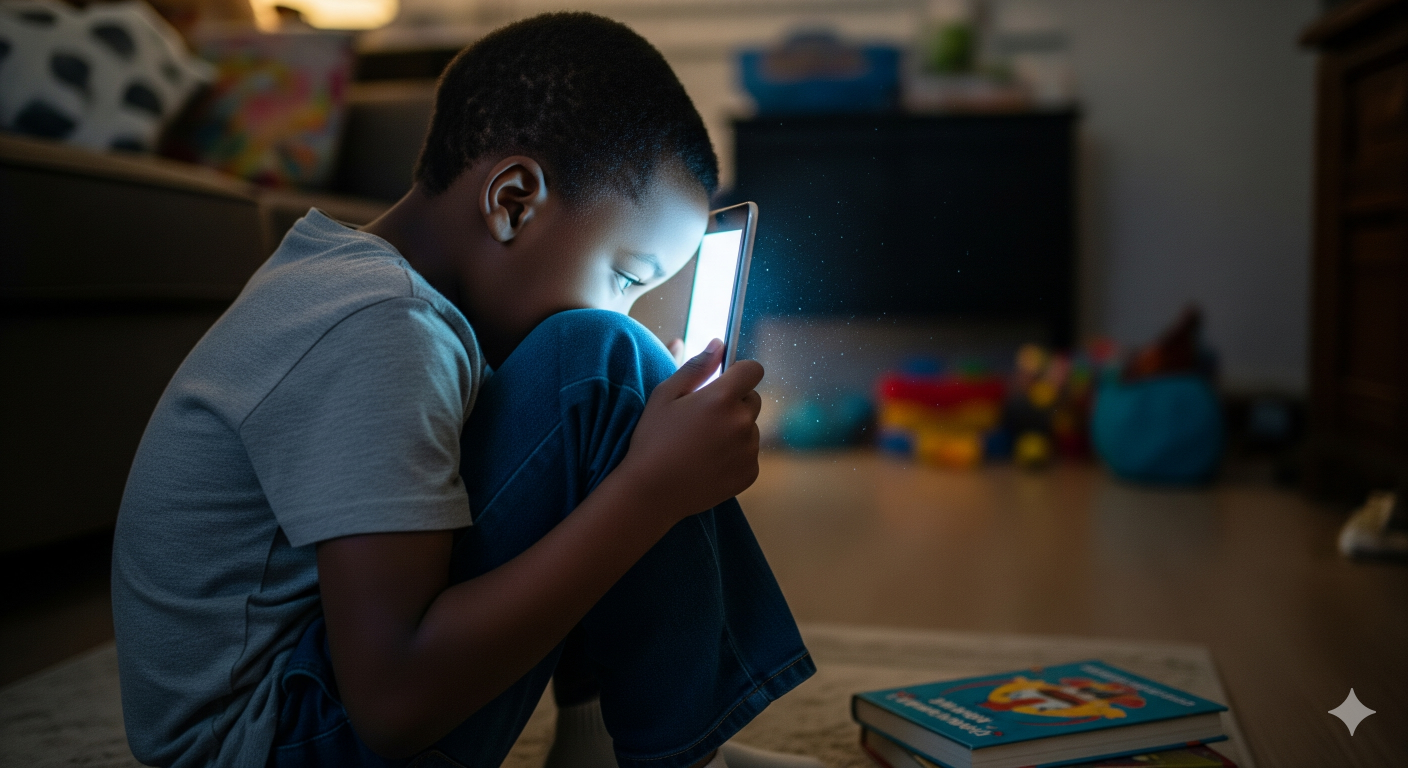A June 2025 article written by The Guardian’s Aliana Demopoulos says that Gen Z parents don’t read to their kids, preferring instead to prop them in front of digital screens all day long. The reasons vary: the parents themselves don’t like reading, they find the idea of reading to children boring, or they get easily fed up with the process because getting a child to sit still long enough to finish a book is a Herculean task. Whatever the reason, this trend of replacing reading with screen time is dangerous and comes with a multitude of harmful side effects that can affect a child’s brain, body, and future.
Let’s talk about these side effects.
Shortened Attention Spans:

Because screens are designed to get and hold children’s attention, they’re generally fast and flashy. These qualities make children with too much screentime get used to quick changes and instant gratification, resulting in them not having the patience to deal with anything that move at the fast pace of the screens they’re so used to.
Poor Sleeping Habits

Digital devices emit something called blue light. In regular doses, it’s beneficial for regulating circadian rhythms, boosting alertness, and supporting mood during the day, but excessive exposure at night, can disrupt sleep by suppressing melatonin. Kids who scroll or watch before bed may struggle to fall asleep or get deep rest, leaving them cranky and resulting in emotional and bahavioural issues.
Stunted Language Development:

When children don’t read, they miss out on new words and sentence structures. Too much screen time can slow vocabulary development, which directly affects communication and academic performance. Speaking of academic performance…
Declining Academic Performance

Research shows that children with heavy screen time often perform worse in reading comprehension and problem-solving compared to those who regularly read books. And this makes sense because books stimulate the brain by encouraging imagination in a way that screens can’t.
Risk of Poor Self-Image

Social media and even some kids’ content can push unrealistic standards. Without books to provide healthier role models and imaginative escapes, kids may compare themselves negatively to what they see on screens.
—
Screens aren’t evil, but when they replace books, they rob children of skills and habits they desperately need. The danger isn’t just missing out on stories; it’s missing out on focus, language, empathy, and self-confidence.
Encourage your kids to put down the tablet and pick up a book. Their future selves will thank you.




